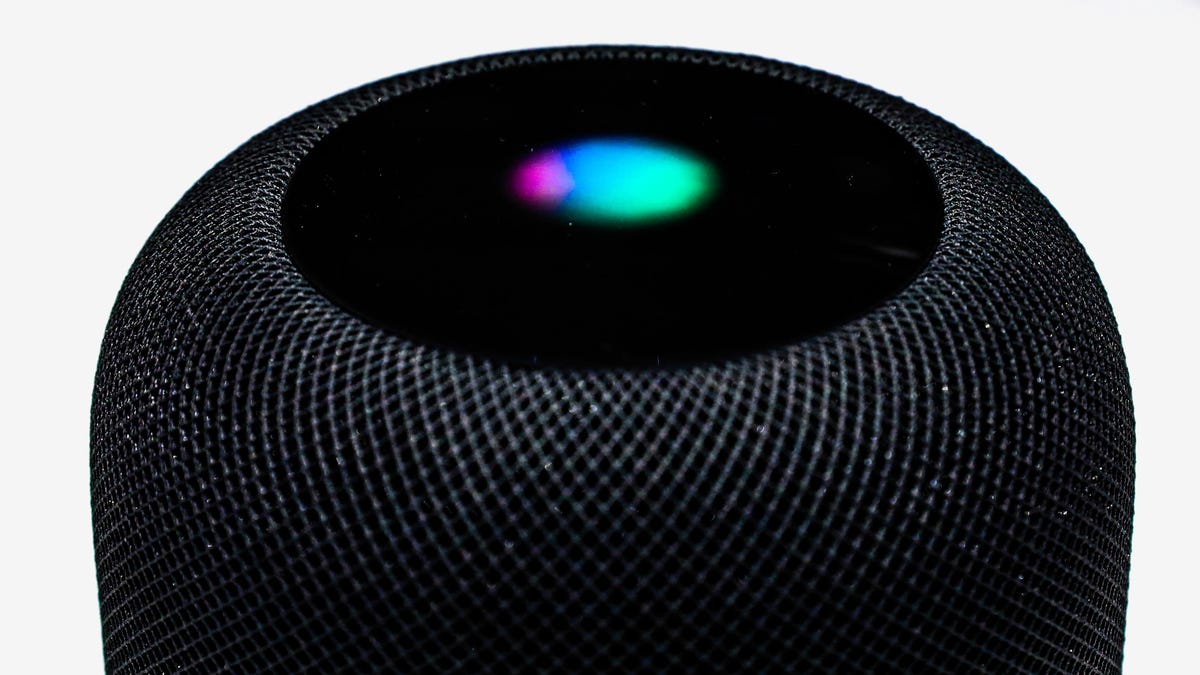Apple HomePod coming on Feb. 9, preorders open on Friday
The smart speaker, originally expected to launch last month, will compete against Amazon's and Google's counterparts, which have a significant head start.

The HomePod is closer than ever.
The HomePod is in the home stretch.
Apple's first smart speaker will go on sale Feb. 9 in the US, the UK and Australia, the company said Tuesday. You'll be able to preorder it on Apple's website starting Friday -- or Saturday in Australia.
The Siri-powered speaker will be available for $349, £319 or AU$499 in white and space gray.
The speaker faces a challenging road ahead. Apple botched its debut by delaying the HomePod's expected December launch and instead bringing the speaker to market outside of the lucrative holiday shopping season. The HomePod will also have to go up against the Amazon Echo lineup, which first launched in late 2014, and Google Home speakers, which went on sale in late 2016. Both Amazon and Google have used the time that Apple has sat out of the market to add more kinds of speakers to their lineups -- priced as low as $50 apiece -- and add thousands of apps to their devices.
Apple is limited in both counts, offering just one speaker at one price that doesn't do nearly as much as its rivals. But, industry watchers warn against writing off a new Apple product before it goes on sale, pointing to Apple fan's strong loyalty to the company and Apple's ability to take over markets it comes into late, such as with its Apple Pay mobile payments service.
In Apple's announcement Tuesday, it said the HomePod will support messaging apps, like WhatsApp, so users can ask Siri to send a message to a friend. Other tools, available through SiriKit, will include reminders, note-taking and to-do list apps like Evernote. Using Apple's HomeKit, the HomePod can also control smart home gadgets, such as lights and thermostats.
This list, though, may seem underwhelming for customers used to the Echo or Home speakers, which have already partnered with dozens of other companies to enable far more voice controls. For instance, both speakers let you order a pizza through Domino's, hail an Uber car and buy from a selection of millions of physical goods.
Researchers have found Siri to be a subpar voice assistant, so Apple will also have to strengthen that part of its speaker. Likely to sidestep some of these issues, Apple has been highlighting the HomePod's audio quality, calling it an "incredible music listening experience." Unfortunately, the ability to connect two or more HomePods together for multi-room listening isn't coming until later this year, Apple said Tuesday. The ability to pair two HomePods in the same room for stereo sound is another feature that's coming later this year.
The HomePod was also noticeably absent at CES earlier this month, while smart speakers essentially dominated the show.
These hurdles aren't insurmountable. Apple, the highest-valued company in the world, has the resources to improve Siri and the App Store partnerships to built up the HomePod ecosystem. Its plans to repatriate a large chunk of its $252.3 billion from overseas could help it jump-start these efforts. Plus, HomePod customers will benefit from continued improvements to the device's cloud-based software, which should get smarter and better at answering user queries over time.
Despite lagging Google and Amazon, Apple has the privacy advantage -- all conversations are encrypted to a higher degree than Alexa and Google Assistant.
But, with millions of people now used to paying well under $100 for smart speakers, the biggest hurdle for Apple -- and customers -- may be the $349 price.
Originally published Jan. 23 at 5:44 a.m. PT.
Update, 6:38 a.m. PT: Added more details about the HomePod. Update, 8:08 a.m. PT: Added more background.
Apple HomePod: Everything we know so far.
'Alexa, be more human': Inside Amazon's effort to make its voice assistant smarter, chattier and more like you.





